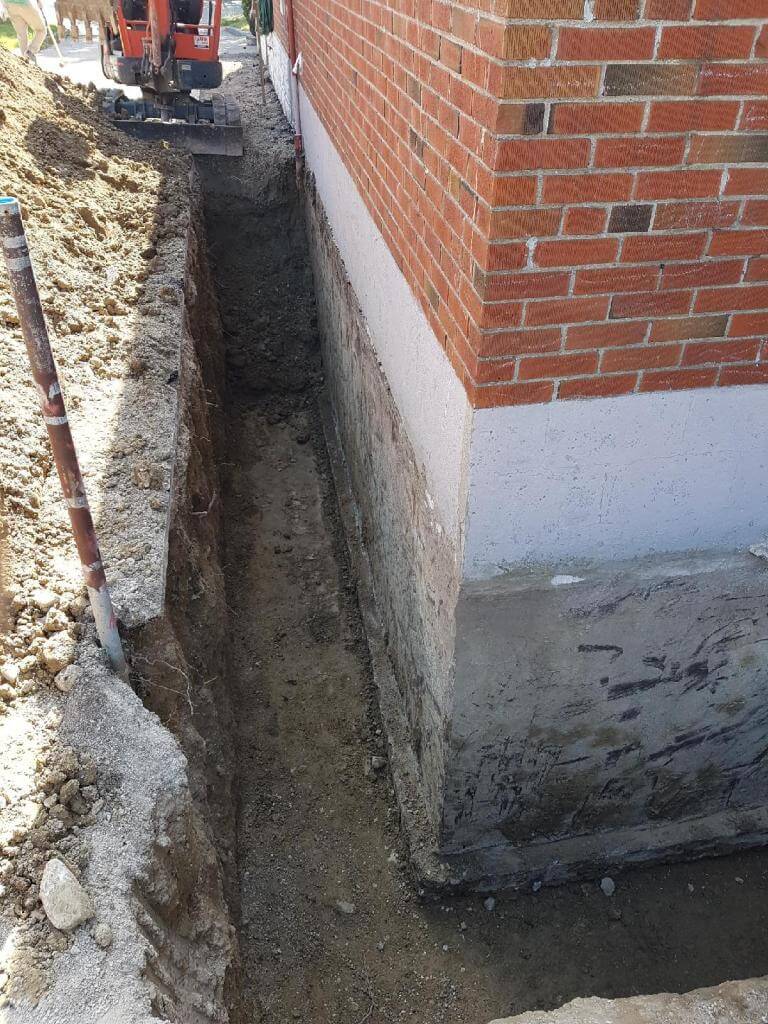Waterproofing is often an overlooked aspect of house and building maintenance, yet its importance cannot be ignored. For property owners and property managers alike, understanding the significance of waterproofing is critical to protecting the durability and lifespan of properties. From avoiding costly moisture issues to mitigating mold growth, effective waterproofing strategies play a pivotal role in protecting your property. This piece will examine the multiple elements of waterproofing, showcasing why it is imperative for every house and structure.
As we navigate the field of waterproofing, we will dive into the comprehensive guide to what you should understand, from spotting signs your home requires immediate action to common myths that need clarification. Whether you are looking into DIY techniques or hiring a contractor, understanding the costs and benefits of waterproofing can save you a lot in potential fixes. Join us as we discover the various aspects of waterproofing and decide whether the cost is truly justifiable for your property.
Significance of Waterproofing
Waterproofing is an essential aspect of upholding the structural integrity and longevity of any house or building. It serves as a defense against water, preventing liquid from penetrating into structures where it can cause serious problems. This is particularly important in areas prone to heavy precipitation or flooding. Not only does waterproofing protect against water-related issues, but it also boosts the durability of construction materials used in construction, ultimately preserving your asset.
Neglecting the need for waterproofing can lead to a range of difficulties, including fungal growth, structural damage, and increased repair costs. Water penetration can destabilize foundations and promote unhealthy habitats due to damp environments. By diligently waterproofing your building, you can avoid these financially burdensome repairs and ensure a secure and wholesome environment for your family or tenants.
In addition to preventing damage, waterproofing can also improve energy savings in structures. By blocking moisture, you reduce the risk of thermal loss and can maintain a uniform indoor temperature. This not only contributes to a more pleasant living space but also leads to lower utility costs, making waterproofing not just a safety measure, but also a smart investment.
Cost-Benefit Analysis of Waterproofing
Putting money in moisture proofing can seem daunting at first glance, particularly when homeowners think about the upfront costs. However, the long-term savings linked with moisture proofing generally outweigh these initial expenses. For instance, properties that are adequately waterproofed are less likely to suffer from moisture damage, mold, and structural deterioration. By preventing these issues, homeowners can avoid costly repairs and save thousands of dollars in restoration and renovation work that may be necessary for a neglected property.
The advantages of waterproofing go beyond just cost savings. Many homeowners find that waterproofed spaces contribute positively to their overall well-being and property value. For example, a dry and properly kept basement not just provides additional usable space but also enhances the property's marketability. Moreover, areas that are resistant to moisture reduce the chance of health-related issues stemming from mold and mildew, leading to a healthier living environment for residents.
In addition, moisture proofing can lead in improved energy efficiency. Wet or damp structures can lead to higher heating and cooling costs, as moisture can harm insulation and overall temperature control. By investing in proper waterproofing techniques, property owners may find reduced utility bills in parallel to the improved comfort of their homes. Evaluating the comprehensive cost-benefit analysis reveals that focusing on waterproofing can yield substantial returns on investment over time.

Selecting the Appropriate Waterproofing Strategies
Determining the right waterproofing strategies for your house requires a comprehensive knowledge of your individual needs and the surroundings. https://notes.io/wHBgY as the regional weather, soil conditions, and the type of structure you possess. For illustration, if you live in an area susceptible to significant rainfall or inundation, you might require a more resilient exterior waterproofing system to shield against liquid penetration. On the other hand, for regions with less intense conditions, indoor options may suffice to regulate moisture amounts.
Afterward, evaluate the different kinds of waterproofing methods available. Indoor waterproofing techniques, such as coatings and barriers, can be efficient in stopping moisture from infiltrating surfaces and floors. Conversely, outdoor waterproofing usually involves excavation and installation of drainage systems, which can be more pricey but provides long-term protection. It's essential to consider the advantages and disadvantages of each method, considering elements like cost, effectiveness, and the disruption each technique may introduce during installation.
Ultimately, seek advice from professionals to ensure you pick the most suitable products and strategies tailored to your particular situation. A skilled waterproofing expert can inspect your building, suggest appropriate options, and provide valuable insights into the newest technologies. Note that, investing in the best waterproofing solutions now can stop expensive fixes in the future, protecting your home from moisture damage and enhancing its durability.
